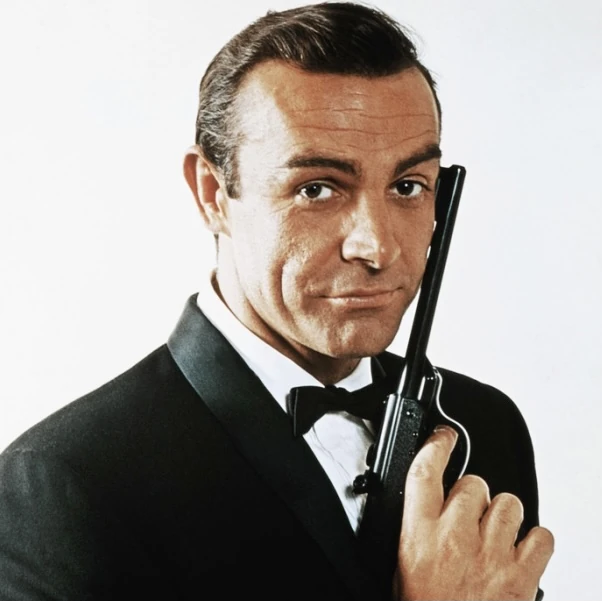Espionage is a distinctive feature of the Cold War. And although these agents are far less flamboyant than the likes of James Bond, their missions were just as dangerous. Cold War agents gathered intelligence on the other side's military and technology, and sometimes carried out sabotage operations or kidnappings. Both the United States and the Soviet Union invested heavily in recruiting, training, and deploying agents.
 |
Sean Connery as James Bond, one of the
most famous spies in popular culture |
One of the best-known spy cases of the Cold War was the passing of American nuclear secrets. The "Atomic Spies" provided critical information about the atomic bomb to the Soviet Union. Most of the Atomic Spies were tried and sentenced, although in some cases, strong testimonies and confessions were admitted as fabricated later on. Two of the most famous spies on this list are Julius and Ethel Rosenberg.
 |
| Klaus Fuchs, one of the Atomic Spies |
In the late 1940s, the FBI uncovered a network of Soviet spies and informers inside America. By the early 1950s, they were led to investigate Julius Rosenberg, a civilian engineer previously employed by the US Army. He was fired when they discovered he was previously a member of the Communist Party. After being accused by his brother-in-law, Julius Rosenberg was arrested on suspicion of espionage. Two months later, his wife, Ethel Rosenberg was also arrested. Eventually, both were charged under the Espionage Act.
 |
| Ethel and Julius Rosenberg |
The couple was found guilty and sentenced to death. They continued to deny the charges and their case was appealed through the courts. Key issues were the impartiality of the trial judge and the applicability of the Espionage Act of 1917. Their campaign failed and they were executed in the electric chair. They were the only Americans civilians executed for espionage during the Cold War.
The Rosenbergs' fate caused outrage both in America and internationally. Some believed that their crimes were undeserving of the death penalty; others thought they were innocent. Major novels painted highly sympathetic portraits of them, portraying them as victims of vindictive FBI officials. However, in the early 1990s, the release of Soviet intelligence information confirmed the Rosenbergs' involvement in espionage.



2 comments:
I think you did a great job of covering this topic in general and in a specific case study. I think that the Rosenbergs' case was infuriating for many, at the time, because of the fear that it produced. Furthermore, because anyone was susceptible to false accusations, it began an era of mistrust and lies.
This is a really conclusive, thorough summary of evidence about the Rosenbergs. One question I still have is if they were just members of the Communist party or if they were actually born out of the country? How did they manage to get so involved in communist activities?
Post a Comment